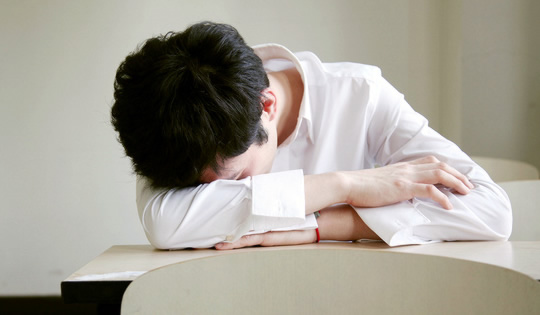Sleep deprivation is typically linked to lower concentration and alertness the next day.
Eating less at night may help to reduce the mental problems caused by lack of sleep, a new study finds.
Professor David F. Dinges, of the University of Pennsylvania School of Medicine, one of the study’s authors, explained:
“Adults consume approximately 500 additional calories during late-night hours when they are sleep restricted.
Our research found that refraining from late-night calories helps prevent some of the decline those individuals may otherwise experience in neurobehavioral performance during sleep restriction.”
The study restricted 44 people to only four hours sleep a night.
Some were allowed to eat all they wanted, though, while others were only allowed water from 10pm until 4am.
The results showed that those not allowed to eat had faster reaction times and better attention in tests administered at 2am.
Not only can eating less help preserve thinking skills, it also helps avoid weight gain.
In another study by the same researchers, the effects of sleep restriction on weight gain and obesity was tested.
They found that as people slept less, their resting metabolic rate decreased.
In other words: the more sleep deprived they were, the less calories they burned.
Dr Namni Goel, the study’s senior author, said:
“Short sleep duration is a significant risk factor for weight gain and obesity, particularly in African Americans and men.
This research suggests that reducing the number of calories consumed can help prevent that weight gain and some of the health issues associated with obesity in Caucasians and particularly in African Americans.”
Both studies will be presented at SLEEP 2015, the 29th annual meeting of the Associated Professional Sleep Societies LLC.
• Related: 10 Sleep Deprivation Effects.
Image credit: Vic Xia

